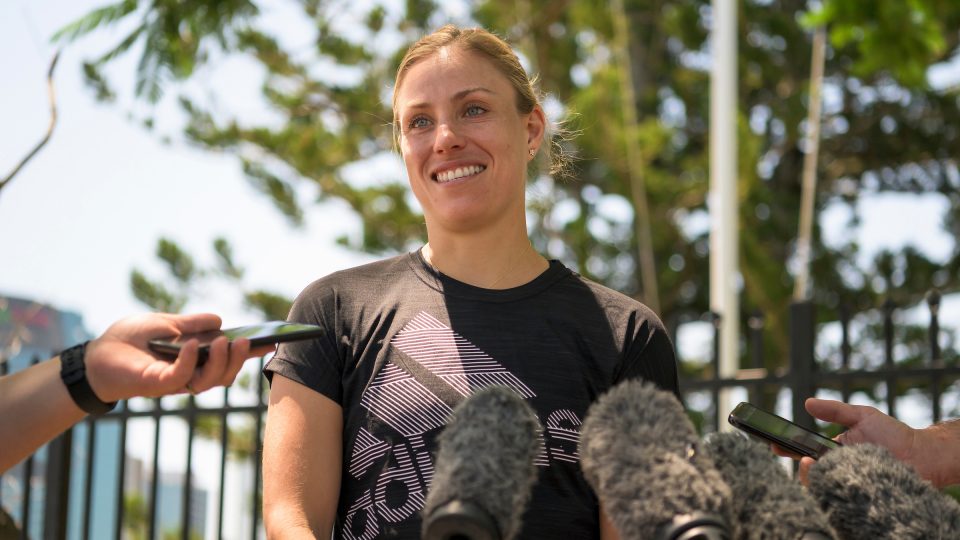Angelique Kerber knows all too well the perils of battling to back up a breakout season.
After standout grand slam-winning runs in 2016 and 2018, the German found it tough going emulating her results in the seasons following.
But the 31-year-old tipped Australian No.1 Ashleigh Barty to handle the heightened expectations to aplomb in 2020.
“She’s always a tough opponent. She’s such a great player, a great person as well and I’m really happy for her that she reached the No.1 spot,” Kerber said.
“She put a lot of effort in and she worked hard. It’s always a tougher year to start as the No.1 player but I think she will deal with that situation.
“It’s for sure completely different – she has all the pressure, all the expectation, especially here in Australia.
“I know her and also her team, she played so well and I’m really sure she’ll continue to play how she played particularly the end of last year.”
Kerber’s past four year-end rankings alternate between sublime to struggling.
She finished as world No.1 in 2016 on the back of Australian and US Open trophies, but ended at No.21 in her follow-up season.
A resurgent 2018 in which she captured a maiden Wimbledon title was the highlight in a season that thrust her back to No.2 in the rankings.
But in 2019, those form woes, a leg injury late in the season and a parting of ways with her coach, Rainer Schuettler, saw her round out the year at No.20.
The odds and even years are at least a good omen for her 2020 Brisbane campaign and a first event with new coach Didi Kindlmann.
“It’s good, yes,” she laughed at the prospect of a return to form in an even year. “I was really looking forward to 2019 being over and we are 2020 now so I’m really looking forward to starting again.
“When I won in Melbourne [in 2016] I also played very well here – I made the final – so let’s see what happens this year.”
Those odd-numbered years in which she carried the extra burden of commitments and expectation have given Kerber the experience and hindsight to warn Barty of what lay ahead in 2020, particularly at her home grand slam.
“Dealing with the pressure, with everything around, not only playing tennis, you have to do much more things off court,” Kerber said.
“I was really trying to enjoy, but you really have to schedule your day a bit different than if you were No.20 or No.30 in the world.
“You have to improve every single tournament, every year, because even if you win a grand slam, everyone is looking to beat you.
“It’s even harder to work to improve just a few things, having the motivation again to start from zero, so it’s harder than reaching the top spot [in the first place].”
Having finished her season still inside the top 20 was hardly cause for panic, and the 31-year-old admitted there was a certain freedom to beginning again as the hunter, instead of the hunted.
“Maybe now I’m not really the focus,” she said. “So it’s always good to focus more on what you do on court.”
